FightMND invests $1.37 million into Care research and PhD Scholarships in 2025
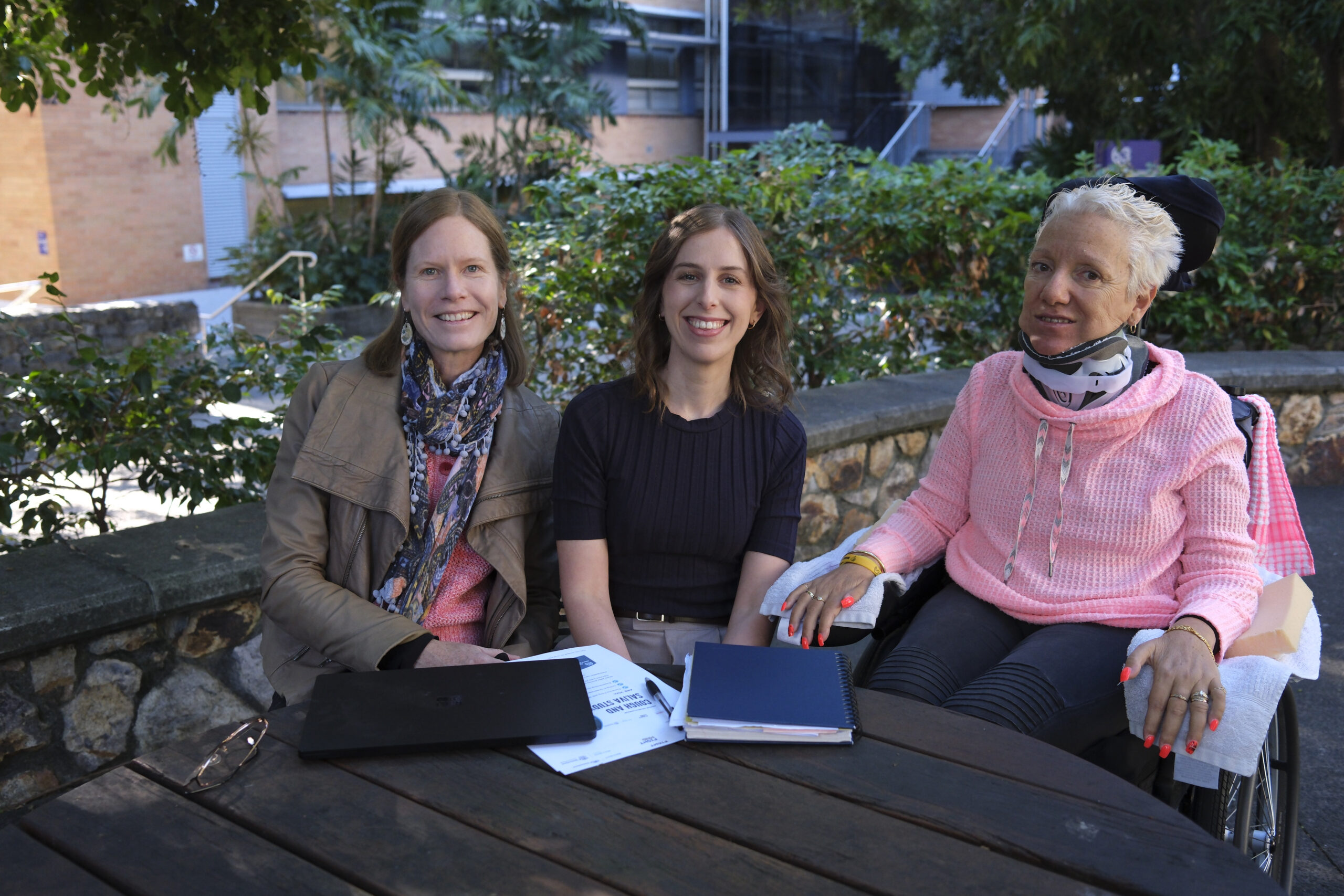
At FightMND, we know that while the search for a cure is vital, people living with motor neurone disease need better support now. That’s why we invest in research that not only seeks to cure MND but also improves the care that makes a difference today.
In 2025, we’re investing nearly $1.37 million into Care Research Grants and PhD Scholarships and Grants-in-Aid. Supporting both innovative care solutions and the next generation of MND researchers. By funding early-career scientists and clinicians, we’re helping build long-term research capacity in Australia and strengthening the pipeline of experts dedicated to tackling this disease.
This funding includes:
- $950,000 across four new Care-focused research projects.
- $199,000 to support a Clinical Care PhD Scholarship and Grant-in-Aid.
- $220,000 through the Angie Cunningham Biomedical PhD Scholarship and Grant-in-Aid, which supports Cure-focused research led by early-career researchers.
Since 2017, FightMND has invested more than $16.49 million into care-focused research and initiatives. This investment supports the development of clinical guidelines, communication tools, nutrition resources as well as establishing more personalised care for Australians living with MND.
By investing in care and cure research, as well as supporting the professionals driving this work, we’re committed to improving lives today while changing the future of MND.
Our 2025 Cure Research and Infrastructure grant recipients will be announced later this year.
Introducing the Chris Ross MND Research Grant
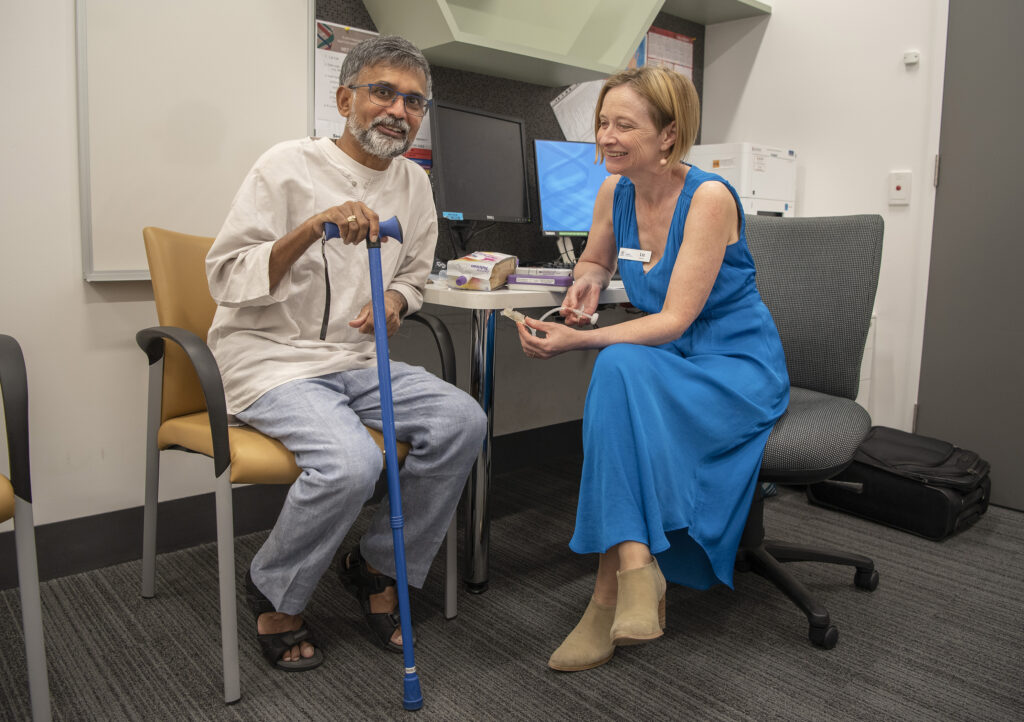
This year, FightMND is proud to announce the awarding of the inaugural Chris Ross MND Research Grant. This Grant honours the memory of Chris Ross, a passionate MND advocate, athlete and inspiration.
Diagnosed with MND at age 31, Chris dedicated his life to raising awareness of MND and funds to support vital research through his Beat the Beast and Run4Rossy campaigns. The Ross family lost Chris to MND in 2023, but his mission continues. The Run4Rossy team remains committed to raising $1 million for MND research and bringing hope to others impacted by the disease.
The Chris Ross MND Research Grant, awarded in consultation with the Run4Rossy Committee, supports care-focused MND research in Australia.
In 2025, the grant is awarded to:
Dr Alison Yaxley (Flinders University) and Ms Elizabeth Kapur (MND Clinic, Flinders Medical Centre)
Project: MND Ed – A Toolkit for Nutrition, Hydration and Swallowing Support This project is developing a user-friendly online toolkit for people with MND and their families. It will provide practical, evidence-based advice to help manage issues like swallowing difficulties and weight loss, challenges that significantly impact the health and quality of life of those living with MND.
Meet the 2025 Care research grant recipients
In addition to the Chris Ross Grant, three other projects will receive Care Research Grants in 2025.
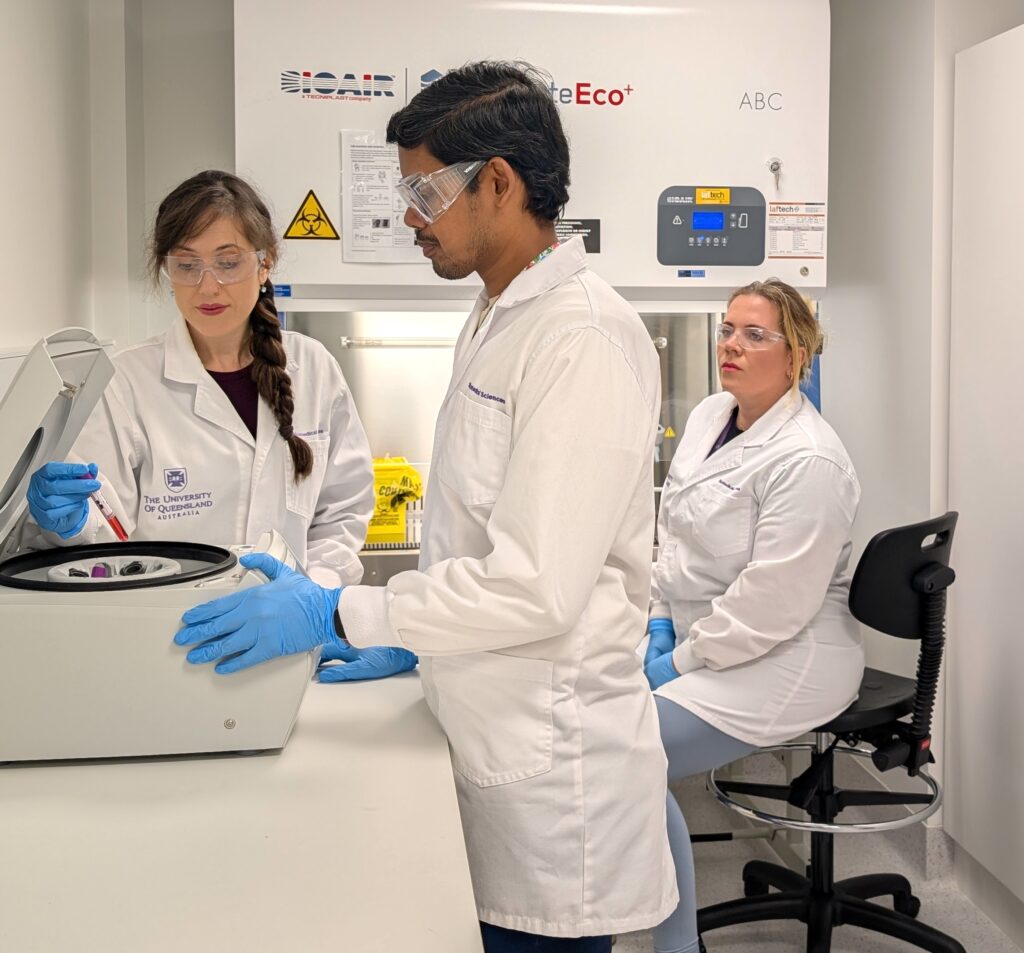
Tailoring Nutrition in MND
People living with MND often face confusing and conflicting advice about diet and nutrition. This project led by Associate Professor Frederik Steyn from the University of Queensland aims to understand how different types of dietary fat affect health in those living with MND. By working closely with people living with MND, this research aims to provide clear, practical and personalised nutrition guidance to help maintain health and wellbeing.
Strengthening the Role of MND Care Coordinators
Dr Karen Hutchinson from UNSW is exploring the role of care coordinators. These coordinators are trusted professionals who help people navigate complex healthcare systems. Her project is mapping how these roles are used across Australia and identifying ways to make access more consistent and equitable.
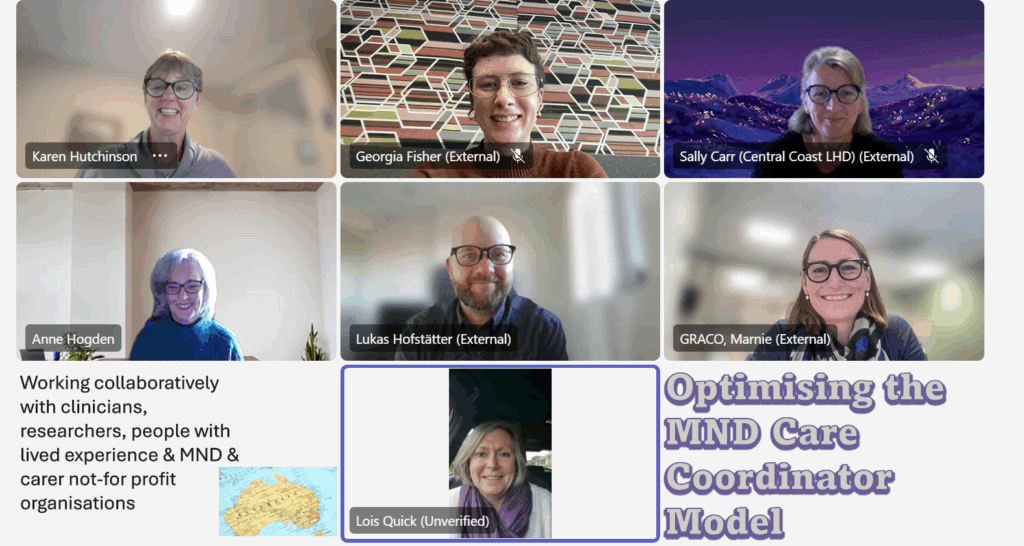
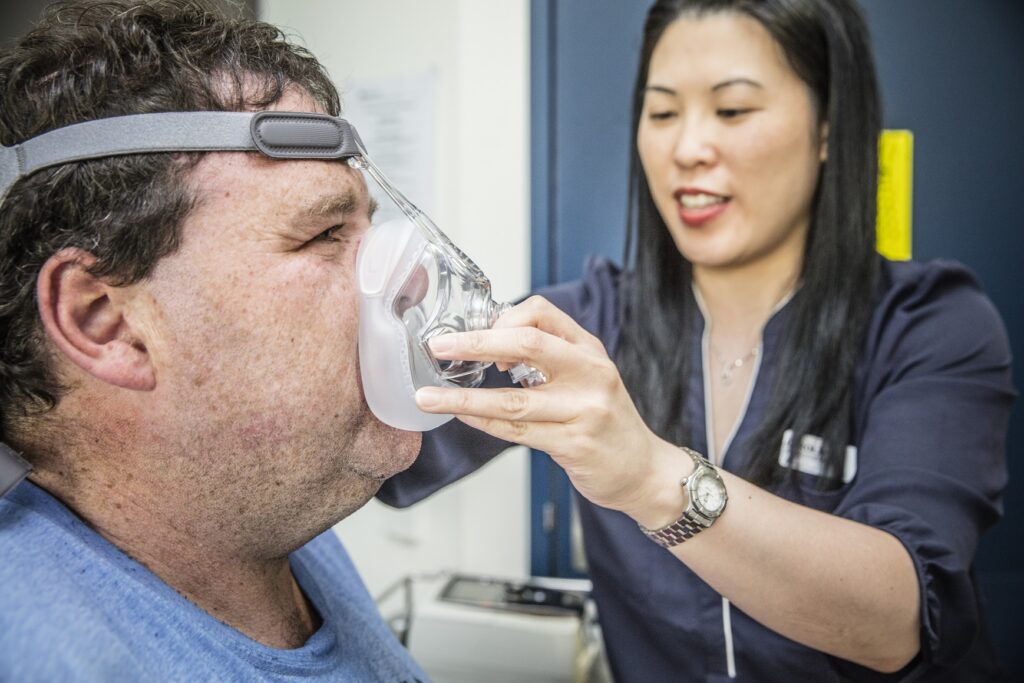
Machine Learning to Improve Breathing Support
Researcher Anthony Stell at the University of Melbourne is using machine learning to improve the use of non-invasive ventilators. These machines can sometimes fall out of sync with a person’s breathing, especially during sleep, affecting comfort and quality of life. Stell’s project aims to fix that by detecting issues earlier and helping clinicians optimise treatment.
Supporting the next generation of MND researchers
At the heart of FightMND’s mission is a commitment to not only accelerate discovery, but to nurture the people who will lead it. That’s why we invest in scholarships for early-career researchers. Giving them the support, resources and mentorship they need to help change the future of MND.
The Angie Cunningham Biomedical PhD Scholarship and Grant-in-Aid
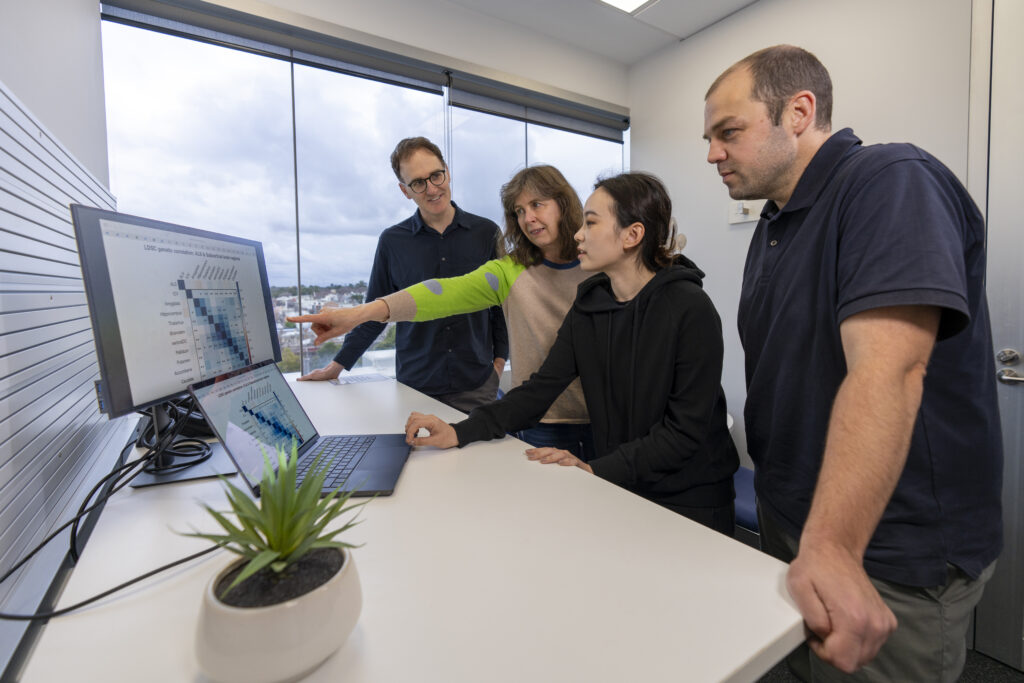
The Angie Cunningham Biomedical PhD Scholarship and Grant-in-Aid honours the extraordinary life of Angie Cunningham, wife of FightMND Co-founder, Pat Cunningham. Angie was a world-class tennis player, Vice President of Player Relations at the WTA and beloved wife, mother and friend. Diagnosed with MND at 38, Angie approached every challenge with courage and compassion. This scholarship continues her legacy by supporting young researchers focused on finding a cure.
In 2025, the scholarship is awarded to:
Xiaoyi Liu, PhD candidate at the Walter and Eliza Hall Institute, supervised by Professor Melanie Bahlo.
Project: Genetic Modifiers and Drug Repurposing in MND
Xiaoyi’s project explores why some people with a known genetic risk for MND develop symptoms much later, or not at all. By analysing large-scale genetic datasets, she hopes to identify protective biological factors and existing medications that could be repurposed to delay or prevent the onset of MND. This work could lead to faster, more targeted treatment strategies.
Clinical Care PhD Scholarship and Grant-in-Aid
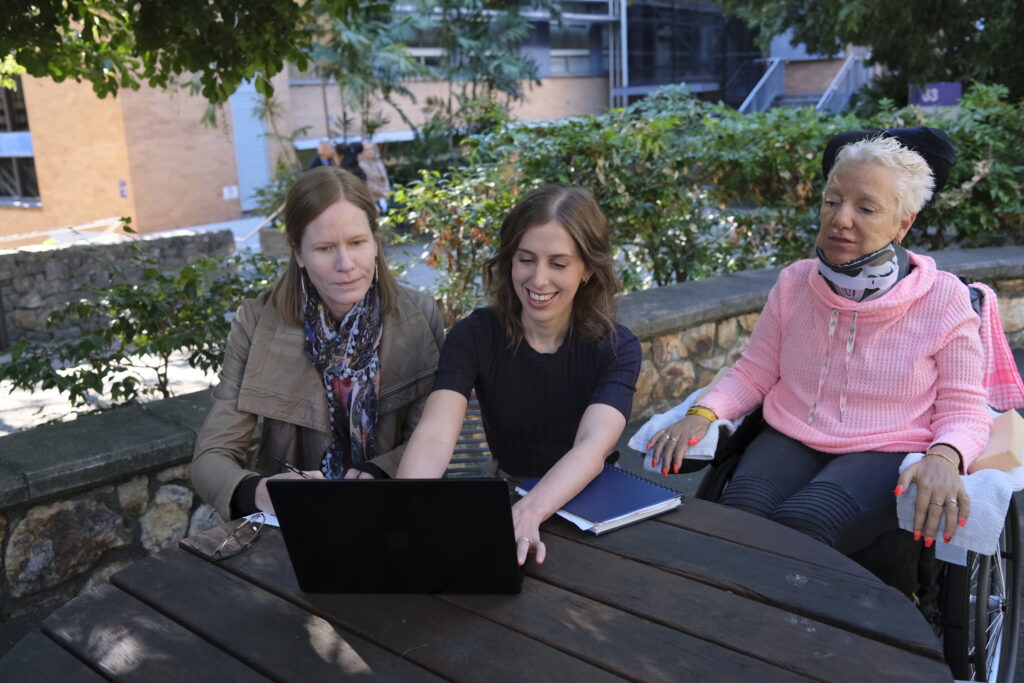
Care is just as vital as cure. That’s why FightMND also supports early-career researchers working to improve the day-to-day care of people living with MND.
In 2025, FightMND is awarding its first Clinical Care PhD Scholarship to:
Laura Donnelly, PhD candidate at Griffith University, supervised by Dr Samantha Bunzli
Project: SCOPE MND – Secretion and Cough Optimisation
Laura’s project looks to improve how secretion and cough symptoms are managed in MND. These symptoms are common but hard to treat, leading to respiratory infections and emergency hospital visits. Laura’s project focuses on delivering better care, especially for people living outside major cities.
Creating hope through research
Since 2014, FightMND has invested over $117.3 million into research and care initiatives supporting Australians living with MND.
These new projects not only build on the remarkable progress already made, they help foster the next generation of MND research leaders. By supporting early-career scientists and clinicians, we’re strengthening Australia’s research capacity and ensuring that innovative, life-changing work continues into the future.
Australia is now recognised as a global leader in MND research. This is because of the brilliant minds, bold ideas and unwavering community support driving us forward.
Want to learn more about the projects receiving funding and the progress being made? Visit Our Impact page to see how your support is making a real difference.